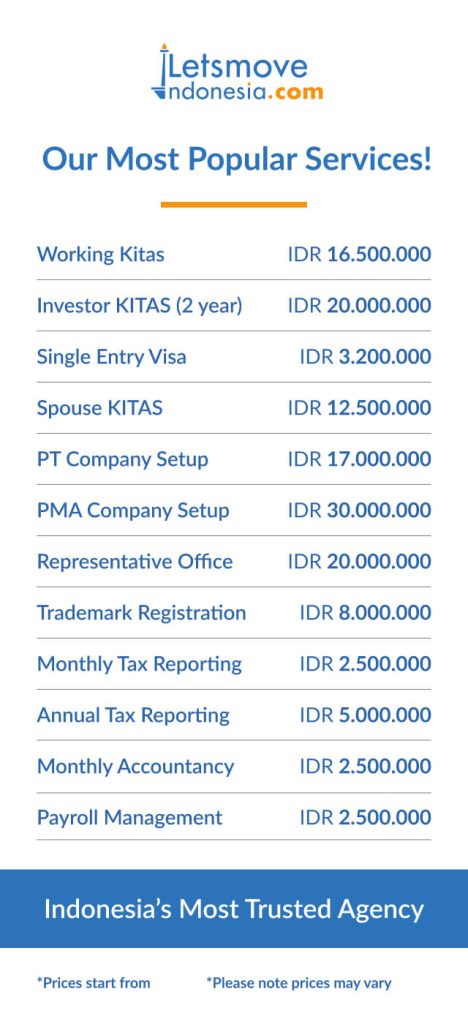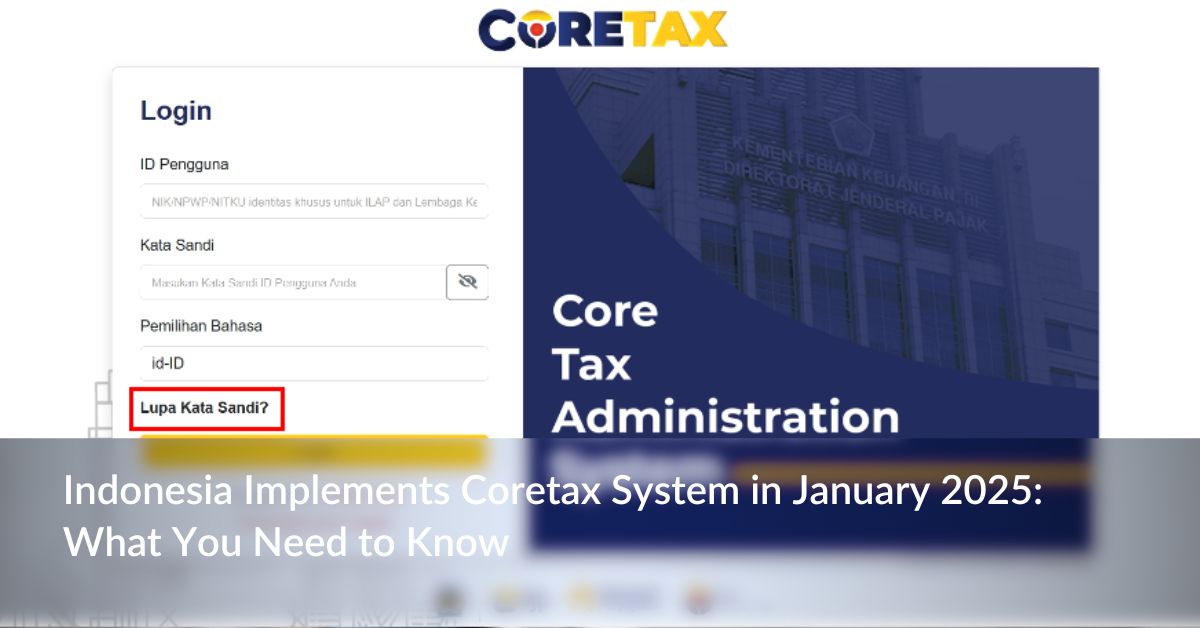For businesses operating in Indonesia, filing an annual tax return is a crucial aspect of staying compliant with the country’s tax regulations. The Corporate Income Tax Return (SPT PPh Badan) is an annual requirement for all companies in Indonesia, and it is used to report the company’s income, expenses, and tax liability for the year.
As a key part of the tax system, understanding the requirements and regulations for filing a corporate annual tax return is essential for businesses operating in Indonesia. In this article, we’ll explore the importance of corporate annual tax returns in Indonesia, and provide an overview of the key facts and requirements for businesses to keep in mind when preparing and filing their tax returns.
What is an Annual Corporate Tax and why is it important?
An annual corporate tax return is a report a company must submit to the government detailing its income, expenses, deductions, and tax liabilities for the previous fiscal year. This report is usually filed with the relevant tax authority in the country where the company is registered or operates.
The purpose of filing an annual corporate tax return is to ensure that the company is complying with tax laws and regulations and to calculate the amount of tax that the company owes to the government. The tax authorities will use the information provided in the report to verify the company’s tax payments’ accuracy and identify any discrepancies or errors.
When is the deadline for corporate tax returns?
In Indonesia, the year of assessment for corporate tax purposes is the same as the company’s fiscal year. The fiscal year is usually the 12-month period that a company uses for financial reporting and budgeting purposes. The fiscal year may or may not be the same as the calendar year.
Therefore, the deadline for reporting corporate tax returns depends on the type of entity and the fiscal year. Generally, corporate taxpayers are required to file their tax returns by the last day of the fourth month following the end of their fiscal year.
What are the types of corporate income tax rates applied to Indonesian companies?
The corporate income tax rate for Indonesian companies varies depending on their level of annual taxable income. As of 2021, the corporate income tax rate in Indonesia is as follows:
- 22% for companies with annual taxable income up to IDR 50 billion (approximately USD 3.5 million)
25% for companies with annual taxable income exceeding IDR 50 billion - For small companies, for example, corporate taxpayers with an annual revenue of not more than IDR 50 billion will be qualified for a 50% proportionate tax discount from the standard CIT rate. Some small and medium-sized enterprises (SMEs) with gross revenue of not more than IDR 4.8 million are subject to a CIT rate of 0.5%.
- It’s worth noting that certain types of income are subject to different tax rates or exemptions, such as income from dividends, interest, royalties, and capital gains. In addition, there may be other taxes and duties that apply to certain types of businesses or industries in Indonesia.
- To calculate their corporate income tax liability, companies must first determine their taxable income by subtracting their deductible expenses and allowances from their gross income. The tax is then calculated based on the applicable tax rate and available tax incentives or exemptions.
What should be included in an Annual Corporate Tax Return?
According to Article 66 (2) of Company Law, must consist of at least the following contents:
- Company Information: This includes details about the company’s name, address, tax identification number (NPWP), and legal status.
- Financial Statements: The financial statements provide a summary of the company’s financial performance during the fiscal year. This includes the balance sheet, income statement, and cash flow statement.
- Taxable Income Calculation: The taxable income calculation shows how the company arrived at its taxable income for the year. This includes details about any deductions, exemptions, or credits that were applied.
- Income Tax Calculation: The income tax calculation shows the amount of income tax that the company owes for the fiscal year. This is calculated based on the applicable tax rate and any available tax incentives or exemptions.
- Withholding Tax Information: The report should also include information about any withholding tax that was paid or received during the fiscal year.
- Other Taxes: If the company is subject to any other taxes or duties, such as value-added tax (VAT) or luxury goods sales tax (PPnBM), this information should also be included in the report.
- Supporting Documents: The company must also provide supporting documents, such as bank statements, invoices, and receipts, to support the information included in the report.
What are the requirements for filing an online corporate tax return?
The following are the general requirements that need to be prepared to file an online Corporate SPT:
- NPWP (Corporate Taxpayer Identification Number)
- Business establishment document
- Business licence document
- Periodic tax return
- Audited financial statements
- Corporate EFIN
- Corporate income tax return form 1771.
What are the benefits of reporting an Annual Corporate Tax on time?
Avoiding Penalties and Fines
One of the main benefits of reporting the annual corporate tax on time is avoiding penalties and fines. If a company fails to submit the tax return by the deadline or submits an incomplete or inaccurate report, it may face penalties and fines from the tax authorities. These penalties and fines can be significant and may impact the company’s financial stability.
Maintaining Good Standing with the Tax Authorities
By reporting the annual corporate tax on time, a company can maintain good standing with the tax authorities. This can be important for building a positive relationship with the tax authorities and may help to prevent any future disputes or audits.
Accessing Financing and Investment Opportunities
Companies that have a good tax compliance record are generally viewed more favourably by lenders and investors. Reporting the annual corporate tax on time and accurately can help to demonstrate that the company is financially stable and well-managed, which may make it more attractive to potential lenders or investors.
Ensuring Compliance with Tax Laws
Reporting the annual corporate tax on time is a legal requirement in Indonesia. By complying with this requirement, a company can ensure that it is meeting all of its obligations under the tax laws and regulations in Indonesia.
Avoiding Legal Action
If a company fails to report the annual corporate tax on time or accurately, it may face legal action from the tax authorities. This can be a lengthy and expensive process that can impact the company’s reputation and financial stability.
Furthermore, filing your tax report early shows your regularity and discipline in paying taxes and also means that your company’s financial condition is healthy. your company is in a healthy state. This certainly has a positive influence on the management of your business.
Why report the Annual Tax Return from LetsMoveIndonesia?
Additionally, reporting your tax return accurately can help you avoid any issues or inquiries from the tax office. It can also help you to better understand your tax obligations and potential deductions that you may be eligible for.
Working with a reputable tax service provider like Letsmoveindonesia will be a huge help, especially if you are unfamiliar with the tax reporting process in Indonesia. We guide what forms you have to file for your tax subject; what documents to include, and can help ensure that your tax return is filed accurately and on time.
Found this article interesting? Then check out these useful guides about Indonesia’s Legal & Tax:
Annual Tax Report: What You Need to Know
The LetsMoveIndonesia Tax & Accountancy Packages
Tax Training From LetsMoveIndonesia
Business in Jakarta: How to Start A PMA in Jakarta












